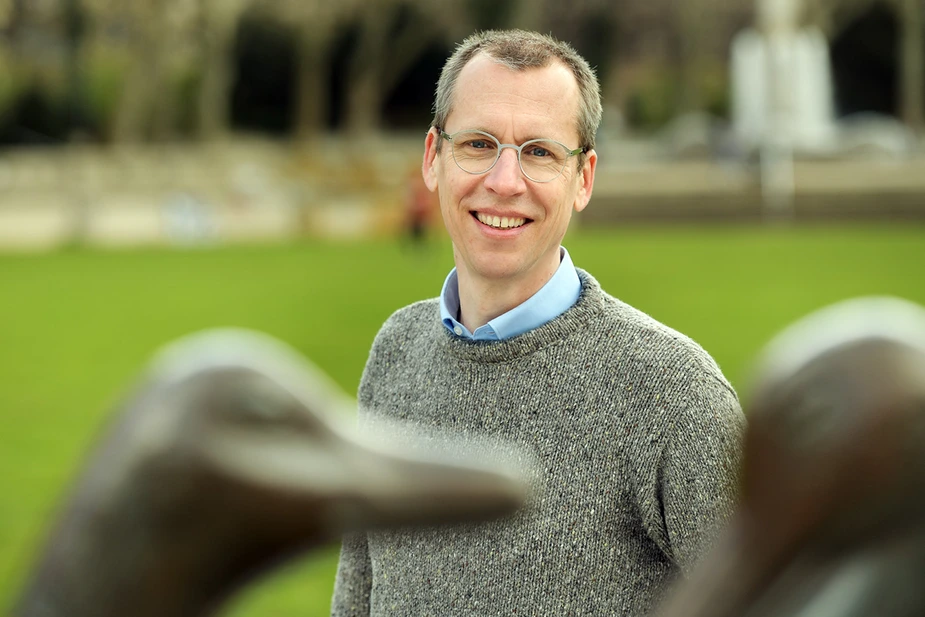Promoting community involvement by walking on water
The experimental laboratory “AnthropoScenes” will kick off on 1 July
Knowledge transfer, an exchange on a level playing field, civic participation: Modern science aims not just at communicating its findings but also discuss with a non-scientific audience. It should be open to input from the general public. By setting up so-called experimental laboratories for science communication, the Berlin University Alliance recently awarded a bid to a project that stakeholders from Adlershof are involved in. Planned to launch in July, „AnthropoScenes“ will use theatre to start a conversation with the public. Coordinated by the Theater des Anthropozän project and the Integrative Research Institute on Transformations of Human-Environment Systems (IRI THESys), the transdisciplinary project will centre in on the issue of water.
Water is much scarcer in Brandenburg than it is elsewhere in Europe — which is one reason why in-depth research on the water cycle is being conducted there. However, not only the researchers of the area are watching droughts and extreme weather events anxiously: “Whether its forest fires, sudden downpours, or floods — people living in Berlin and Brandenburg are clearly noticing the consequences of climate change,” says Jörg Niewöhner, spokesperson of AnthropoScenes and director of IRI THESys at Humboldt-Universität zu Berlin. “In contrast to the often abstract issues that science typically deals with, the people here are directly affected: it is easy to grasp why this subject is a relevant research topic. This is also why it lends it self to working it with interested people.” In the three years to come, Niewöhner and his colleagues will home in on research findings dealing with water and explore what it’s like to live under extreme regional conditions in close cooperation with the public.
Content is provided by water researchers from the region, including geographers from Adlershof. The artists of Theater des Anthropozän will use it to develop stage performances. If the budget allows, the AnthropoScenes team plans to send its team on a tour of Brandenburg on a bus. “It is central that this is an open process,” says Niewöhner. Open meaning that the scientific findings are discussed with an audience and the results of that discussion flow back into the performances as well as the research itself. At the end, the team will collect its findings together and use it to create a game show format that will presented to an international audience at Humboldt Labor in 2024.
“We want to create formats that enable more people to contribute to research,” emphasises Jörg Niewöhner. More than now and earlier, the public should be involved in the processes of science and research. Furthermore, it is important, he says, that science communication seeks to reach more people than the archetypal retired, higher-civil-service teacher types. By focusing on this ad-hoc theatre approach, the project team hopes to lay the groundwork for long-term cooperation between the Berlin University Alliance and the public. “We will be faced with massive changes in society like the Green Deal. This social and ecological transformation must be tackled by science and society together. With AnthropoScenes, we hope to support and promote this exchange.”
By Nora Lessing for Adlershof Journal
